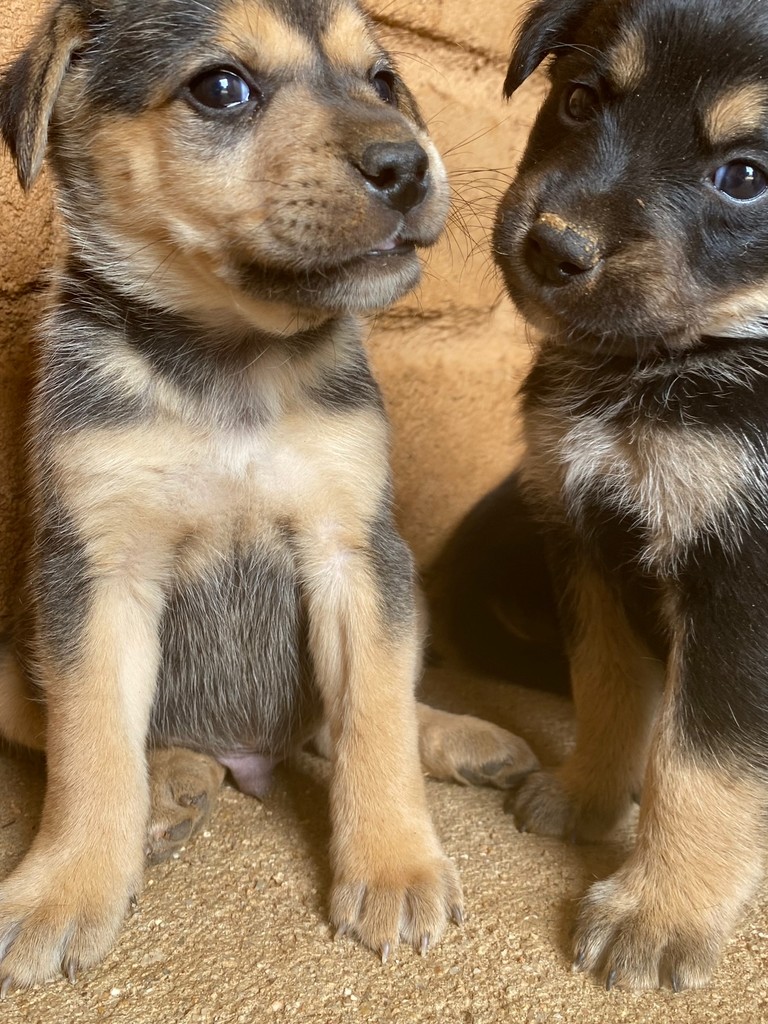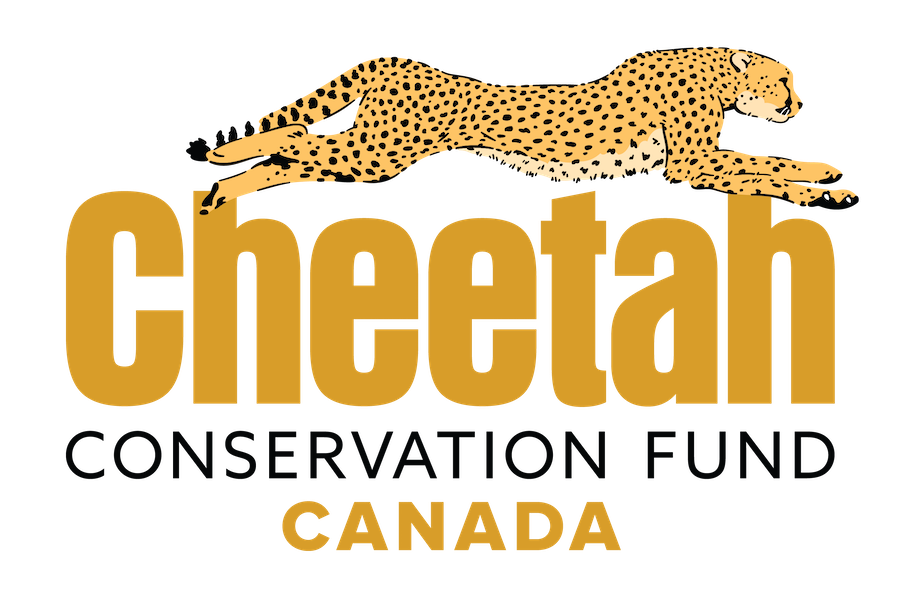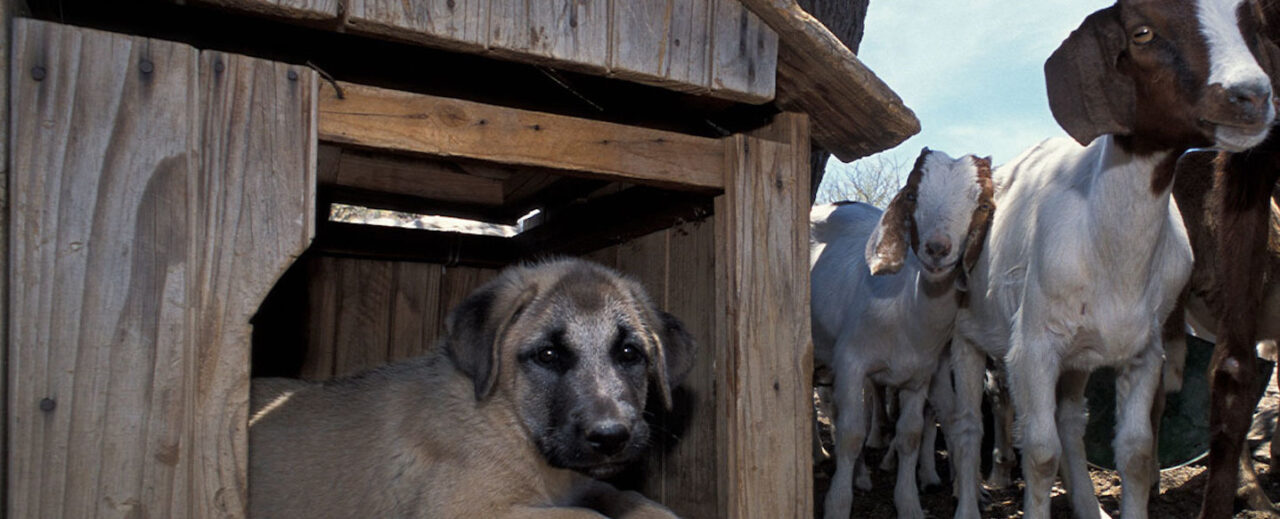 THESE PUPPIES WILL GROW-UP TO SAVE CHEETAHS
THESE PUPPIES WILL GROW-UP TO SAVE CHEETAHS
Large size and loud bark: How livestock are protected from cheetahs
Subsistence farmers in Namibia live alongside the cheetah and other wildlife. They cannot afford losing any livestock. Often children will be watching over the livestock, limiting their time in school. The Cheetah Conservation Fund (CCF) raises and breeds on a CCF model farm in Namibia livestock guarding dogs (LGDs). At 11 weeks old the LDGs are provided to farmers to protect their livestock. The puppy’s bond with their herds and bark loudly whenever they see a cheetah or predator, scaring the aggressor away. Research demonstrated that predation has dropped between 80-100% for farms with these LGDs. Farmers no longer need to kill cheetahs (or other predators) in order to protect their livestock and their livelihood. As the puppies grow, they will be tested to assess their responses to different behavior tests. With proper care and socialization to the herd, these puppies will mature into strong, confident and capable working dogs, helping farmers to keep their livestock safe.
Necessity
Food for puppies before they are assigned to a farm in Namibia to protect their livestock.
Activity
Providing the nutrition needed for the puppies to grow strong
Countable effort
The puppies start weaning at 3 weeks, they start on food 1xDay, slowly increasing to 2xDay and then 3xDay bowls of food until they are ready to leave.
Result
Help provide food bowls to 100 puppies destined to protect livestock against attacks from cheetahs and other wildlife in Namibia farmland.
Systemic effect
These dogs are saving cheetahs. Without these dogs, farmers would kill cheetahs and other predators. Cheetahs play an important role in the ecosystem.
Background
Surprisingly, cheetahs do not fare well in protected areas like national parks and wildlife reserves. This is because these areas normally contain high densities of other larger predators like the lion, leopard, and hyena, all of which compete with cheetahs for prey. Given the opportunity, those other predators will also prey on cheetahs and cheetah cub mortality can be as high as 90%. As a result, nearly 90% of cheetahs in Namibia live in open areas and on private farmlands and therefore often come into conflict with people. Cheetahs are killed in retaliation for livestock predation or because of their perceived threat to human livelihood. The LGD program provides a non-lethal solution to farmers and they participate in ongoing education to support the dog’s development. CCF breeds Anatolian shepherd and Kangal dogs, breeds that for millennia have guarded small livestock against wolves and bears in Turkey.
The good deed
Your GOOD DEED supports and expands the program "Dogs Saving Cats". CCF's goal is to place over 100 puppies to farmers in Namibia in 2024. Your GOOD DEED will help feed the puppies. Puppies get about 150 bowls of food before placement at a farm at 11 weeks. CCF covers vet examination, vaccinations, deworming, castration and cares for the 15 breeding dogs providing care, stimulation, training, food, vet etc. Cheetahs live primarily in grasslands and benefit the ecosystem by keeping the animals they hunt at healthy populations. They typically hunt the weak and slowest of several species of animals. If cheetahs no longer existed, there would be a domino effect referred to as a trophic cascade. There would be too many herbivores resulting in loss of vegetation, greater soil erosion, less available water, and a negative impact on the health of the ecosystem.

About Otjiwarongo, Namibia
Capital of Namibia
Windhoek
Population Namibia
2,53 million (2021)
Gini Index
59,1% (World Bank) (2015)
second worst income inequality worldwide
HDI 0,615 (2021)
139th rank of 191 countries
The largest population of cheetah can be found in Namibia, home to 1,400 cheetahs. The cheetah is the most endangered big cat in Africa with less than 7,500 left.
About the organization and further information

Cheetah Conservation Fund Canada




